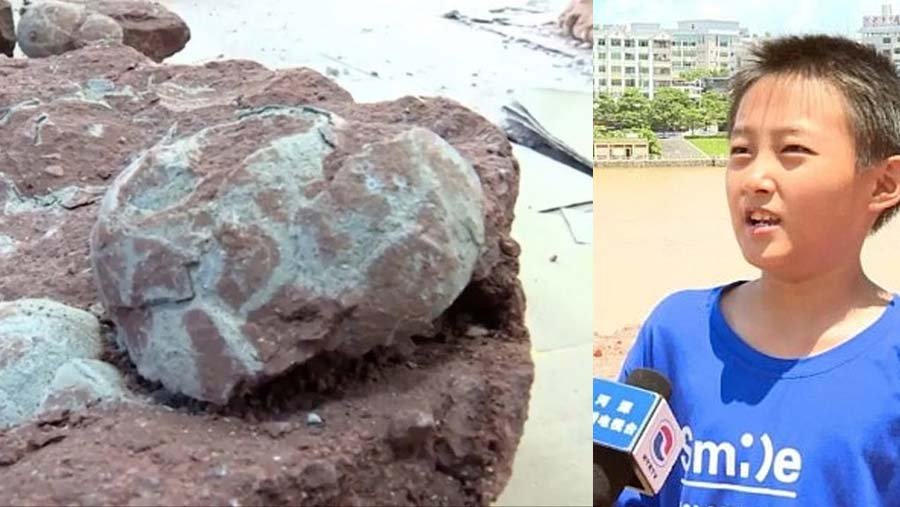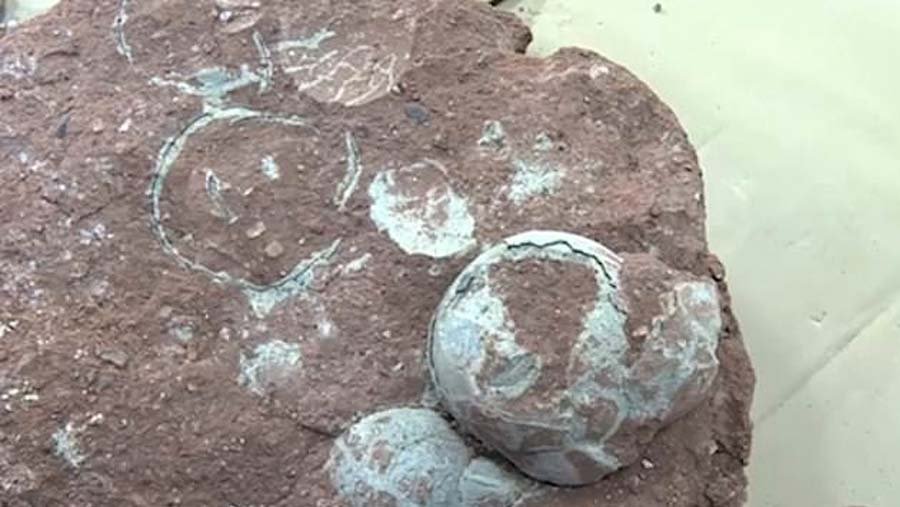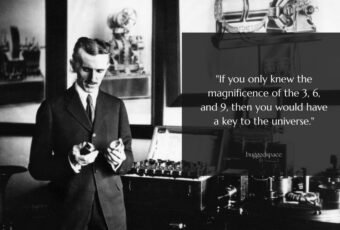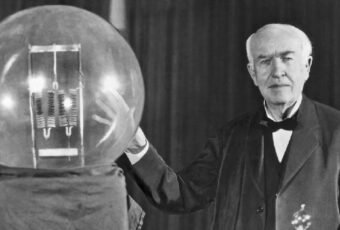9-year-old Zhang Yangzhe was playing near a lake when he stumbled upon a fossilized dinosaur egg, which led to the discovery of a very rare dinosaur nest that is 66 million years old.

The discovery was made in the city of Héyuán, in the province of Guangdong. Zhang was playing near the Dong River under the supervision of his mother when he made the discovery.
Zhang was trying to find something that could crack open walnuts, instead, he found one of the semi-rare round fossils at the riverbank in the downtown area. He called his mother, Li Xiaofang to help him understand what he found.
‘Then I called my mother over, (and we) thought the shell looked like that of a dinosaur egg.’

While he was digging he saw a”strange stone.” The stone was buried in the red soil and Zhang dug it up very carefully, at first he thought that the rock had ‘circles’ on its surface. His first impression was that it may have been a piece of cement.
Upon further inspection, Zhang knew that the strange-looking stone was something unusual and suspected that it was a dinosaur egg, because of its shape. He later told the media that he had learned about the eggs in the books and in the cultural corridor of the school.
Zhang’s mother told the media that the boy had recently visited the local museum where he saw various shapes of dinosaur egg fossils, some complete while others broken, which helped him in recognizing the dinosaur egg.
“The bridge over the river has been damaged by the flood, and the soil below the abutment was exposed. He found an eggshell on the slop and called me immediately to tell me about his discovery, saying it seemed like a dinosaur egg.”
Zhang’s mother contacted the local museum, they sent a team to dig out even more dinosaur eggs around the place. After excavation, the team found 10 more identical dinosaur eggs similar to the one Zhang had found. They determined that all of the eggs belong to the nest as they were all unearthed in a small area.

Experts believe that all 11 eggs are about 3.5 inches long and date back to 66 million-year-old. Huang Dong, a former director at the local Museum said, “that the fossils came from the late Cretaceous period.”
“The Cretaceous period is a geological period that lasted from about 145 million to 66 million years ago. It is the third and final period of the Mesozoic Era, as well as the longest.”
The eggs have been taken to Heyuan Dinosaur Museum for further studies to determine their type. The Heyuan Dinosaur Museum claims to have 10,008 dinosaur eggs, the largest collection of its kind in the world.
A home of Dinosaurs
The discovery of 66 million dinosaur nests is not the first rare discovery in the city of Héyuán. A city with a population of three million inhabitants is known and the “home of dinosaurs” because of the amazing discoveries.
The first major discovery of dinosaur eggs was in 1996, which was also near the Dong River. A total of 43 eggs were discovered in 2015 by workmen doing railroads. More than 17,000 dinosaur eggs have been dug out in the city.
Read more from the wesbite:










